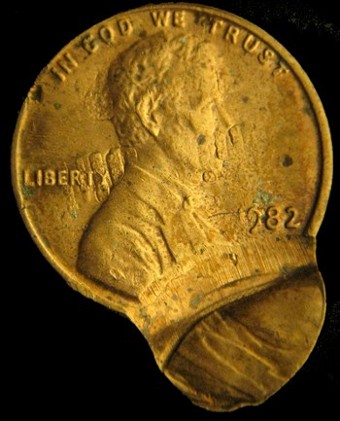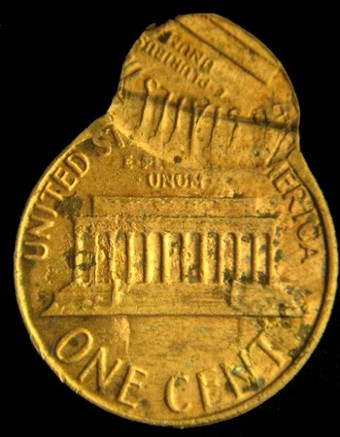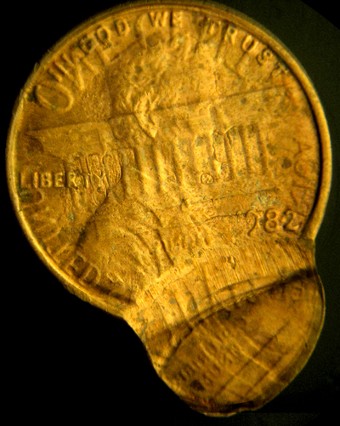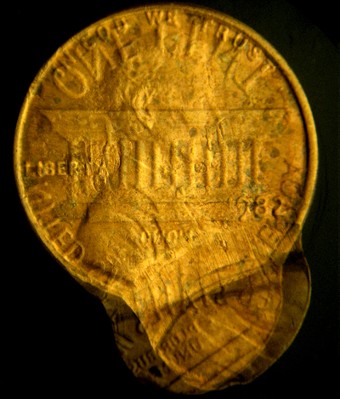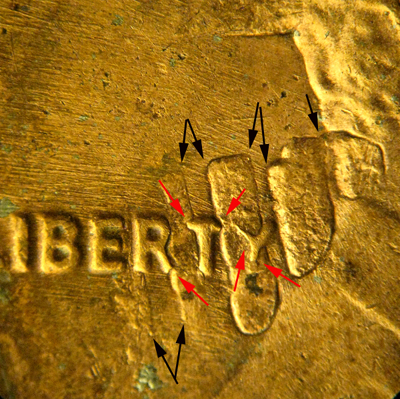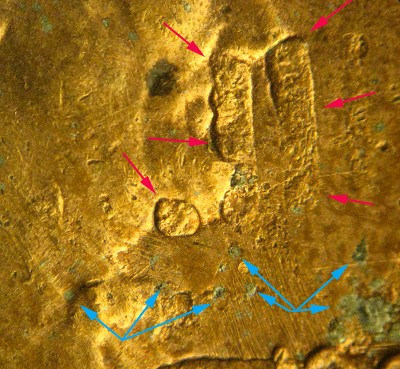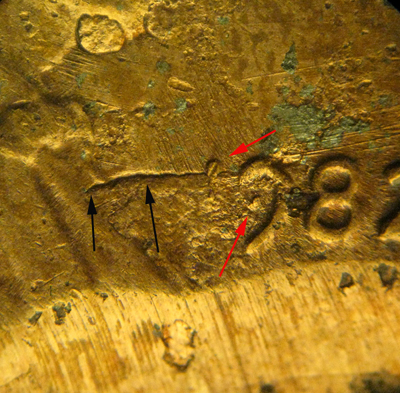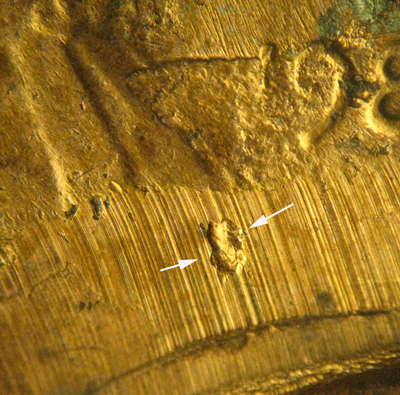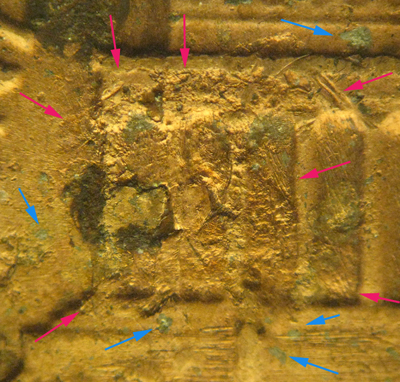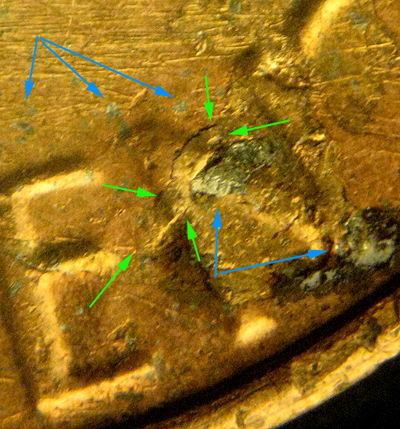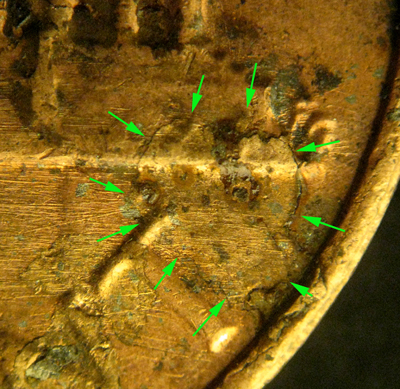ADC-1c-1982(LD-Cu)-01
This 1982P large date, copper/zinc, Lincoln cent is more than unusual and more than likely unique. At first glance it appears to be a double struck (two different die pairs) with a strong die clash. However, it is much more than that.
The overlays above show that the dies were rotated from each other approximately 11°. The overlays to the left shows the obverse and reverse dies in a correct alignment, while the overlay to the right shows the position of the dies when they did clash.
A close examination of the obverse of the coin gives some indication of what may have occurred. Look at the first image above and notice the varying widths (black arrows) of where the columns (lack of die clash marks) are. Also notice that parts of the letters TY of LIBERTY are thinned or missing. Also notice the peculiar shapes and texture of the clash marks. Another oddity is that portions of the clash marks are seen in Lincoln’s collar and neck.
The next image above again shows the odd shape and texture of the clash marks. Notice how one of the clash marks is through the lip and chin area of Lincoln (red arrows). The blue arrows are pointing to embedded pieces of silvery metal.
The next image shows the roof line from the Memorial building clashed through the date (black arrows). The 1 digit has been all but obliterated while a small portion of the 9 digit has also been affected. Notice the large patch of silvery metal above the 8 digit. The next image shows an indent where presumably a piece of the embedded silvery metal has been dislodged when the coin was scraped across the collar during the second strike.
The first image of the reverse of the coin shows a large area of damage (red arrows) through bays 1 through 3. The blue arrows point to embedded pieces of silvery metal. Another patch of peeling copper is seen by the T of CENT.
The second image of the reverse shows an area where the copper is peeling off. This is similar to a lamination peel (green arrows). Again, there is a presence of silver particles embedded into the coin (blue arrows).
The last image to the right shows more embedded silver pieces and damage to the field above the Memorial building roof.
An in hand examination of this coin shows that there was something else in the striking chamber when the die clash occurred. It was more than likely a piece of a feeder finger that had broken off.
When the dies struck the foreign object, parts of the foreign material wrapped around the field areas creating an extra thickness of the field in varying degrees. When the dies did clash the extra thickness impacted the opposing die making the clash marks deeper than normal. Some of the foreign material was pushed into the incused design elements of the opposing die, which depending on that extra thickness, obliterated or partially erased that design element.
The pieces of the partially shattered foreign material (feeder finger) were struck into both the obverse and reverse of the coin. So in reality, this is a die clash struck through foreign material. Both Mike Diamond and I have agreed that this is the most likely scenario to this unusual die clash.
This coin is in the collection of Mike Diamond
